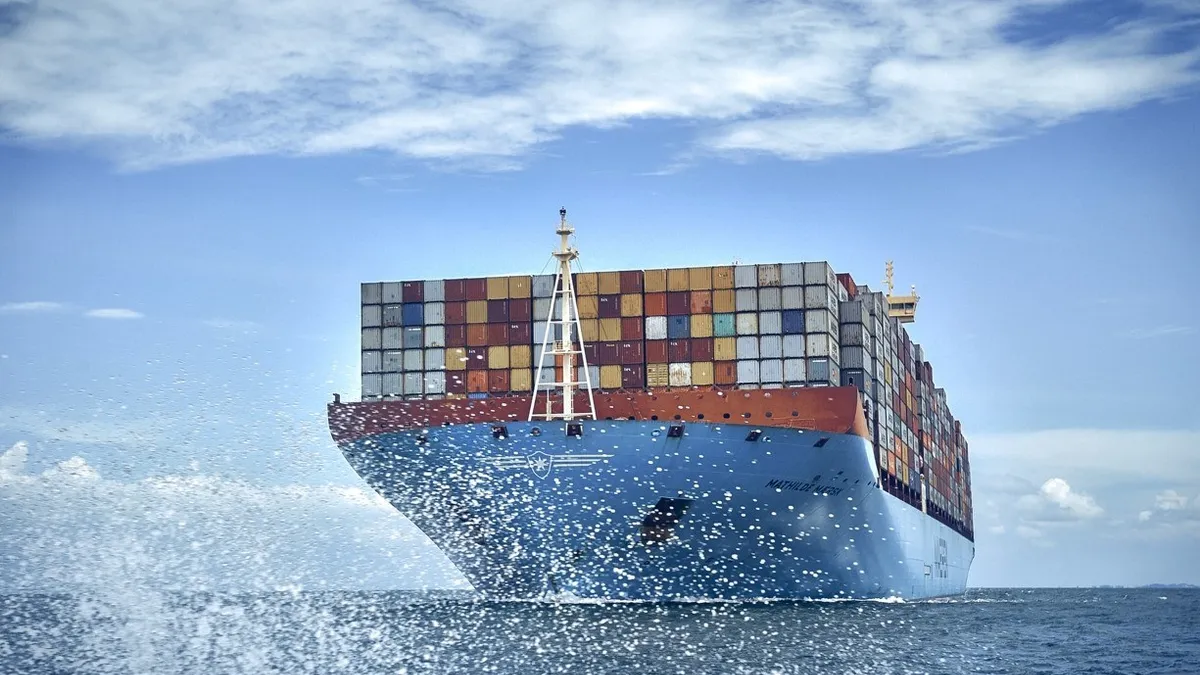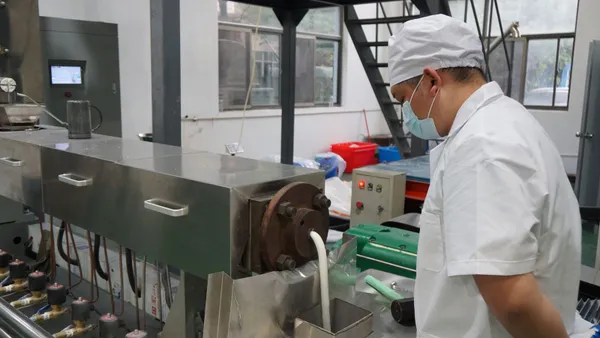Dive Brief:
- Volvo Cars will use container ships powered by renewable fuels to transport production materials to its factories in Europe and the Americas, according to a press release Tuesday.
- Instead of using fossil fuels, Volvo’s logistics partners will use Fatty Acid Methyl Esters, which are mostly made from used cooking oil, to fuel inbound ocean container shipments of production materials to its factories and distribute spare parts.
- The company aims to reduce ocean freight-related carbon emissions by at least 84% compared with fossil fuels.
Dive Insight:
Volvo Cars is the first global automaker to use renewable fuels almost exclusively to ship containers of production materials, the press release says. The move is part of the company’s plans to reduce its lifecycle carbon footprint per car by 40% from 2018 to 2025 and achieve carbon-neutral manufacturing by 2025.
The automaker expects to immediately reduce its fossil CO2 emissions from intercontinental ocean freight by 55,000 metric tons annually. When Volvo Cars cannot use biofuels for ocean freight, its logistics partners, Maersk, Kuehne+Nagel and DB Schenker, will use them for another customer’s route.
“The reduction is equivalent to the CO2 emissions of a full truck driving around the equator about 1,200 times,” the press release says.
In a statement, COO and Deputy CEO Javier Varela said that switching from fossil fuels to biofuels is a short-term measure to lower climate pollution from ocean freight, highlighting the need for further action.
“This initiative shows that we can act now and implement solutions that achieve significant results during the wait for long-term technological alternatives,” he said. “We want to spark other car makers into action as well, to increase demand for carbon efficient ocean transports and to establish renewable fuels as a mid-term solution that works. We all have a responsibility to act.”
Biofuels allow shipping fleets to reduce climate emissions from existing container ships and related infrastructure by directly replacing fossil fuels. However, renewable fuels still create air pollution, and there may not be enough supply to meet the worldwide demand for shipping fuels.












